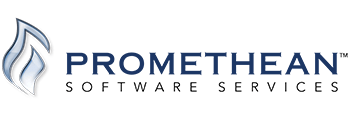Standards are the invisible framework that allows businesses and industries to communicate, collaborate, and thrive in a connected world. They form the foundation for interoperability, efficiency, and innovation, shaping how organizations connect across industries and borders. On World Standards Day, we recognize the profound impact of standards on global commerce and modern technology. In the realm of Electronic Data Interchange (EDI), communication protocols, and Value-Added Networks (VANs), these standards are essential for modern business operations, enabling seamless, secure, and reliable data exchange that powers supply chains, partnerships and digital transformation worldwide.
The Language of EDI Standards
EDI standards define how critical business documents like purchase orders, invoices, and shipping notices are structured and exchanged. By standardizing data formats, these frameworks reduce errors, ensure compatibility, and simplify compliance.
KEY EDI STANDARDS
1. ANSI (American National Standards Institute): The American National Standards Institute (ANSI) oversees the development of EDI standards in the United States. ANSI’s work ensures consistency, reliability, and security in the exchange of business data. One of its most significant contributions is the widely used X12 standard, the backbone for many EDI transactions in North America.
2. ASC X12 (Accredited Standards Committee X12): A subcommittee of ANSI, the Accredited Standards Committee X12 (ASC X12) specializes in developing and maintaining the X12 standards. These standards are predominantly used in North America and cover various industries, making ASC X12 a critical player in the EDI ecosystem. Its focus on transactional accuracy ensures that business documents are standardized for compatibility across diverse systems.
3. UN/CEFACT (United Nations Centre for Trade Facilitation and Electronic Business): On the global stage, UN/CEFACT leads the way in developing international EDI standards. Its flagship contribution is the EDIFACT (Electronic Data Interchange for Administration, Commerce, and Transport) standard, used worldwide for cross-border transactions. By providing a universal framework, UN/CEFACT ensures that businesses across different countries can communicate without barriers.
4. GS1: GS1 is a non-profit organization known for its barcoding and data synchronization work, but its influence also extends into EDI. GS1 developed the EANCOM standard, a subset of EDIFACT widely used in retail and supply chain sectors. With its focus on improving efficiency and accuracy, GS1 continues to be a driving force in global commerce.
5. OASIS (Organization for the Advancement of Structured Information Standards): Specializing in open standards for the Internet, OASIS plays a significant role in modernizing EDI. It is responsible for developing XML-based standards, such as ebXML (Electronic Business using eXtensible Markup Language), which provides flexibility and interoperability for businesses using web-based EDI systems.
6. VICS (Voluntary Interindustry Commerce Solutions): Before its merger with GS1, VICS was instrumental in developing EDI standards tailored to the retail and consumer products industries. VICS EDI standards helped streamline supply chains, and its legacy lives on through its integration into GS1’s broader initiatives.
7. HL7 (Health Level Seven International): In the healthcare sector, HL7 takes the lead in developing standards for the exchange, integration, sharing, and retrieval of electronic health information. Its EDI-specific standards address the unique requirements of healthcare data, ensuring that critical information flows securely and accurately across systems.
8. TRADACOMS (Trading Data Communications Standard): Developed in the United Kingdom, TRADACOMS was one of the early EDI standards primarily used in retail and supply chains. While EDIFACT has largely replaced it, TRADACOMS played a significant role in laying the groundwork for modern EDI practices.
These standards create a universal language for businesses, enabling seamless exchanges between diverse systems.
Communication Protocols: The Backbone of Data Exchange
Secure and efficient data transmission relies on robust communication protocols. These protocols provide the infrastructure for exchanging EDI files and other critical data.
KEY COMMUNICATION PROTOCOLS
• AS2 (Applicability Statement 2): A widely used protocol for secure, real-time business document exchanges over the Internet.
• SFTP (Secure File Transfer Protocol): Known for its encryption and authentication capabilities, SFTP ensures secure file transfers.
• HTTPS (Hypertext Transfer Protocol Secure): Common in web-based EDI portals, securing data with SSL/TLS encryption.
• OFTP2 (Odette File Transfer Protocol): A preferred protocol in the automotive industry for secure and efficient file transfers.
These protocols ensure data integrity, security, and reliability, essential for modern business operations.
The Legacy of VAN/Interconnect Standards
Value-Added Networks (VANs) have been a cornerstone of EDI communication, providing a managed and standardized way to exchange data. Early VANs simplified the complexity of connecting with multiple trading partners. Core features of VANs include:
• Mailboxing Services: Securely store and forward documents between trading partners.
• Inter-VAN Communication: Facilitating seamless exchanges between different networks.
• Tracking and Acknowledgments: Offering visibility into message delivery and error reporting.
VANs continue to play a vital role for businesses that require secure and managed communication solutions.
Character Encodings: The Hidden Standard
Character encoding is a critical but often overlooked aspect of data exchange. It determines how text is represented in digital files, ensuring accurate data interpretation across systems. Common encodings include:
• UTF-8: A versatile and widely adopted encoding that supports multiple languages and modern systems.
• ASCII: A more straightforward encoding used in legacy systems and basic text files.
• EBCDIC: Primarily used in mainframe environments, particularly in industries like banking.
The correct encoding is vital for maintaining data integrity and preventing errors during exchanges.
Why Standards Matter
Standards are more than technical specifications—they enable businesses to operate efficiently, comply with regulations, and foster collaboration across industries. They reduce complexity, enhance security, and ensure interoperability, driving global progress in every sector.
Looking Ahead
As technology and industries continue to evolve, the importance of standards will only increase. These frameworks will remain essential for enabling innovation, fostering collaboration, and ensuring seamless connections in an increasingly interconnected world. Businesses can confidently adapt to new challenges and opportunities by building on established standards.
Discover how Promethean SSI can help your business leverage EDI standards, communication protocols, and VAN services to streamline operations and enhance connections. Contact us today to get started!

